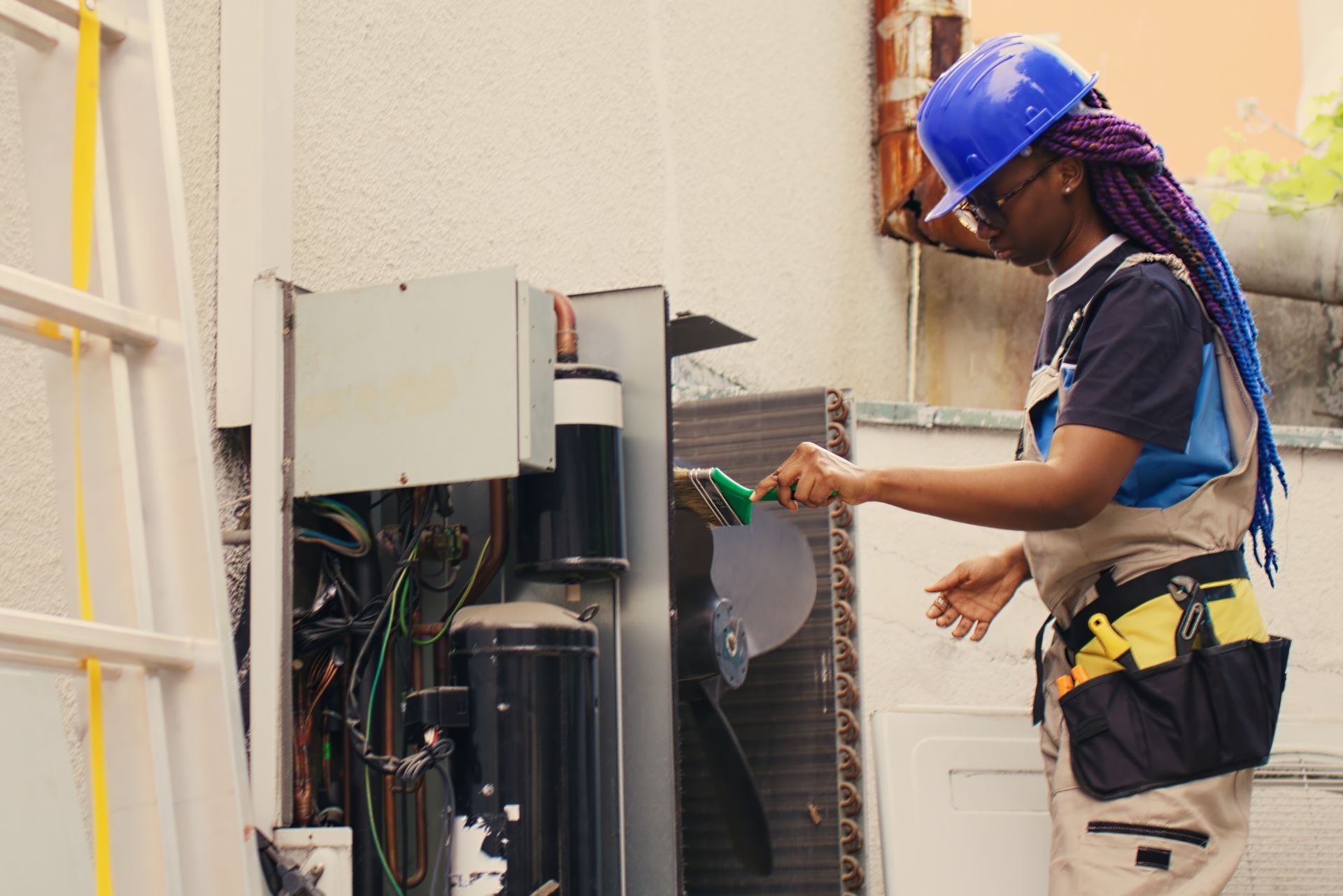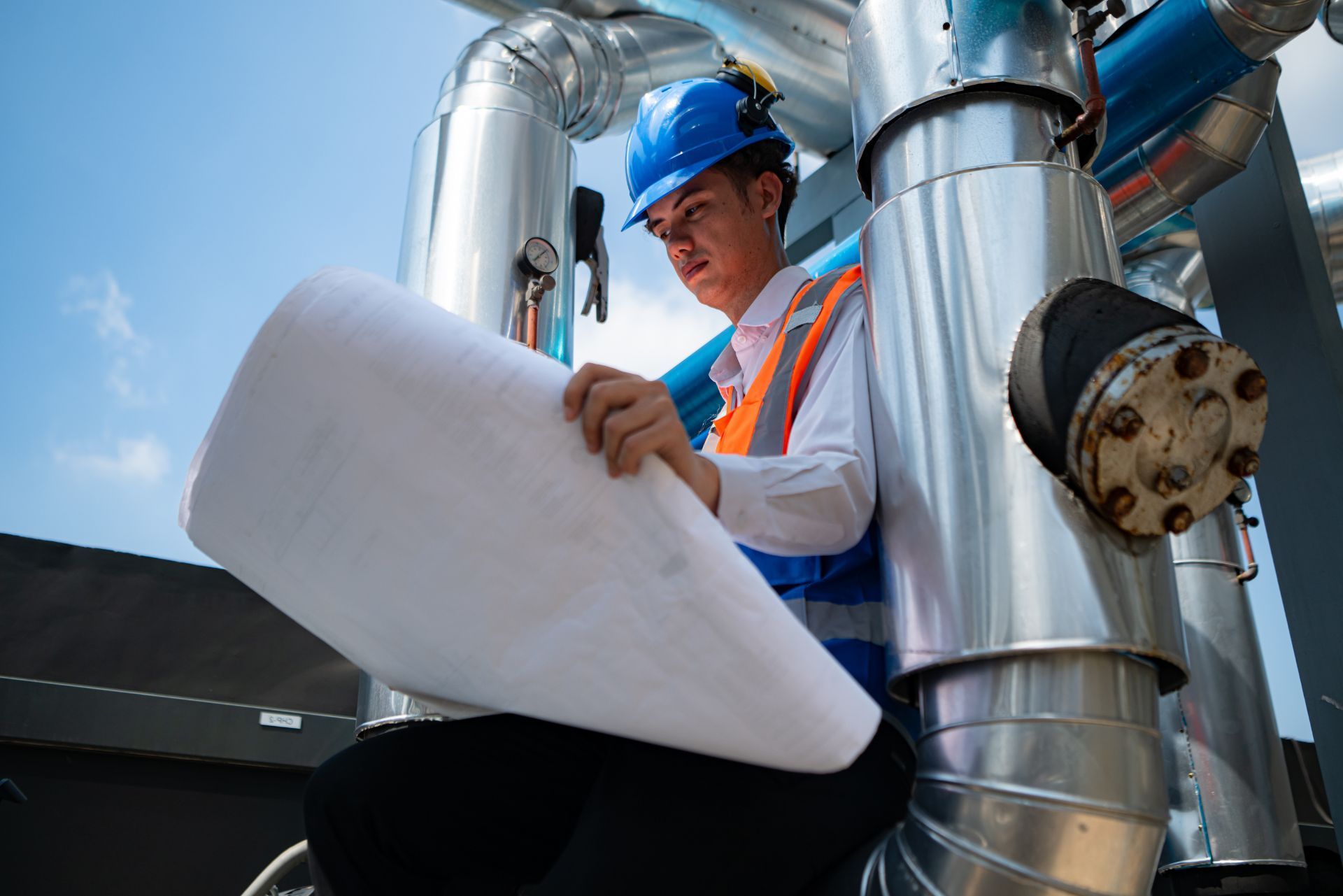Top 3 Recommended Policies

Running an HVAC business in Idaho means working through dramatic temperature swings and an evolving insurance market that can be difficult to keep up with. Contractors here face a growing number of wildfire-related risks, rising equipment costs, and increased liability exposure as home values climb across the state. The right insurance coverage is what keeps those challenges from becoming financial setbacks. This guide explains what HVAC contractor insurance in Idaho includes, how market changes are shaping premium costs, and which policies matter most for long-term protection. With insurance rates continuing to rise statewide, understanding your options can help you keep your business covered and financially stable through every season.
The Rising Cost of Insurance in Idaho and Its Impact on HVAC Contractors
Idaho’s insurance market has undergone notable changes, particularly due to escalating home values and wildfire risks. According to Nick VinZant, a senior analyst at QuoteWizard, “As you see the price of houses go up, the cost of home insurance is going to go up as well.” This correlation has had a ripple effect on contractors, including those in the HVAC industry, who often require liability and property insurance linked to their work on residential properties.
Over the past six years, homeowners insurance prices in Idaho have risen by nearly 46%, with increases of 16.9% in 2023 and 10.5% in 2024 alone, according to ValuePenguin’s recent study. This trend reflects broader inflationary pressures and the growing risks insurers face, especially in wildfire-prone areas.
For HVAC contractors, these rising costs mean that insurance premiums for business liability, equipment, and vehicle coverage may also increase, particularly if your work involves properties in high-risk zones. Understanding these market dynamics helps contractors budget appropriately and seek the best possible coverage.
Why Wildfire Risk Matters for HVAC Contractors
Wildfires have become a significant concern in Idaho, with the devastating Paddock fire in August 2024 burning nearly 190,000 acres over 12 days. This event underscored the increasing wildfire risk that insurers must factor into their pricing models. The Idaho Department of Insurance even issued Bulletin 25-02 in April 2025, requiring insurers to report data specifically related to wildfire exposure in homeowners and dwelling fire property insurance policies.
This heightened focus on wildfire risk has led many property insurers to nonrenew policies in affected areas. By April 2025, approximately 22 to 25 out of 91 property insurance companies in Idaho had nonrenewed some or all policies due to wildfire concerns. For HVAC contractors, this means that working in wildfire-prone regions could translate to higher insurance costs or stricter underwriting requirements.
Moreover, the implications extend beyond just insurance costs. HVAC contractors may find themselves facing increased scrutiny during the bidding process for projects in high-risk areas. Homeowners, aware of the potential for insurance complications, might prefer contractors who can demonstrate a solid understanding of wildfire mitigation strategies. This could lead to a competitive advantage for those who invest in training and certifications related to fire-resistant HVAC systems and energy-efficient installations that comply with evolving safety standards.
Additionally, as the demand for HVAC services continues to grow in tandem with rising home values, contractors may need to adapt their business models to include comprehensive risk assessments and proactive measures. This could involve collaborating with local fire departments and environmental agencies to ensure that installations are not only effective but also contribute to the overall safety of the community. As the landscape of insurance and risk management shifts, HVAC contractors in Idaho must remain agile and informed to navigate these challenges effectively.

Essential Insurance Coverage Types for Idaho HVAC Contractors
HVAC contractors face a unique set of risks, from property damage to liability claims. Having the right insurance coverage is vital to protect your business, employees, and clients. Here are the most important types of insurance for HVAC contractors in Idaho:
1. General Liability Insurance
This coverage protects against third-party claims of bodily injury or property damage resulting from your work. For example, if an HVAC installation accidentally causes water damage to a client’s home, general liability insurance can cover legal fees and damages. This type of insurance not only safeguards your financial interests but also enhances your professional reputation, as clients are more likely to trust a contractor who is adequately insured.
2. Commercial Property Insurance
This protects your business property, including tools, equipment, and your physical office or workshop, from risks like fire, theft, or vandalism. Given Idaho’s wildfire risk, ensuring your property is adequately covered is critical. Additionally, consider the seasonal fluctuations in Idaho's weather, which can lead to unexpected property damage. Having comprehensive commercial property insurance can provide peace of mind, allowing you to focus on your work without the constant worry of potential losses.
3. Workers’ Compensation Insurance
Required in Idaho for businesses with employees, this insurance covers medical expenses and lost wages if an employee is injured on the job. HVAC work involves physical labor and potential hazards, making this coverage essential. Moreover, fostering a safe work environment not only reduces the likelihood of accidents but also can lead to lower insurance premiums over time. Investing in safety training and equipment can further protect your employees and your bottom line.
4. Commercial Auto Insurance
If your business uses vehicles for service calls or transporting equipment, commercial auto insurance protects against accidents, theft, and damage to your vehicles. This coverage is particularly important in Idaho, where long distances between jobs can increase the risk of accidents. Additionally, having a reliable vehicle is crucial for maintaining your schedule and ensuring customer satisfaction, making this insurance a vital component of your operational strategy.
5. Equipment Breakdown Insurance
HVAC contractors rely heavily on specialized tools and machinery. Equipment breakdown insurance helps cover repair or replacement costs if your equipment fails unexpectedly. This type of insurance can be a lifesaver during peak seasons when downtime can lead to significant lost revenue. Furthermore, regular maintenance of your equipment can help mitigate risks, but having this insurance ensures that you are prepared for the unexpected.
6. Professional Liability Insurance
Also known as errors and omissions insurance, this protects against claims arising from mistakes or negligence in your professional services. In an industry where precision is key, having this coverage can protect you from costly legal battles that may arise from dissatisfied clients. It not only covers legal fees but also any settlements or judgments, allowing you to maintain your business's financial health even in challenging situations.
Choosing the right combination of these coverages depends on your business size, location, and specific risks. Consulting with an insurance professional experienced in Idaho’s market can help tailor a policy that fits your needs. They can also provide insights into additional coverages that may be beneficial, such as
cyber liability insurance, which is increasingly important as HVAC contractors adopt new technologies and digital tools for their operations. Understanding the nuances of each type of coverage can empower you to make informed decisions that protect your business and its future.
How Idaho’s Insurance Market Trends Affect HVAC Contractor Premiums
Insurance premiums for HVAC contractors in Idaho are influenced by several factors, including the broader property insurance market trends. The rapid rise in home prices has “burned right through” the cost-of-inflation wiggle room in insurance policies, as noted by Nick VinZant from QuoteWizard. This means insurers have less flexibility to absorb increased claims costs without raising premiums. The increasing demand for HVAC services, driven by both new constructions and aging infrastructure, has further complicated this landscape. Contractors are finding themselves in a dual bind: while the need for their services is growing, the costs associated with providing those services—including insurance—are also on the rise.
Additionally, the wildfire threat has prompted insurers to reassess risk exposure, leading to policy nonrenewals and stricter underwriting. For HVAC contractors, this translates into potentially higher premiums, especially if your service area overlaps with wildfire-prone zones. The unpredictability of natural disasters has made insurers more cautious, and as a result, contractors may need to invest in additional risk mitigation strategies, such as fire-resistant materials or enhanced training for employees on safety protocols. This not only helps in managing insurance costs but also positions the contractor as a responsible and proactive service provider in the eyes of clients.
Given that Idaho has nearly 300 HVAC contractors statewide, with Boise accounting for over 17% of these businesses, competition for affordable insurance can be intense. Contractors may find it beneficial to shop around and compare quotes from multiple insurers to secure the best rates and coverage options. However, it’s also essential for contractors to understand the nuances of each policy, as the cheapest option may not always provide the necessary coverage. Engaging with an insurance broker who specializes in contractor insurance can provide valuable insights and help navigate the complexities of the insurance landscape.
Tips for Managing Insurance Costs
HVAC contractors can take proactive steps to manage insurance expenses:
- Implement Safety Protocols: Reducing workplace accidents can lower workers’ compensation claims and liability risks.
- Maintain Equipment: Regular maintenance reduces the chance of equipment breakdowns and related claims.
- Bundle Policies: Purchasing multiple coverages from the same insurer may qualify for discounts.
- Review Coverage Annually: Adjust your policy limits and deductibles based on your current business needs.
- Invest in Training: Providing ongoing training for employees on safety and best practices can lead to fewer accidents and claims, ultimately reducing premiums.
- Utilize Technology:
Implementing technology solutions for project management and safety monitoring can also help in minimizing risks and improving efficiency.
Preparing for Future Insurance Challenges in Idaho
With the Idaho Department of Insurance actively monitoring wildfire risks and property insurance market conditions, HVAC contractors should stay informed about regulatory changes and market developments. The recent data call issued in April 2025 highlights the state’s commitment to understanding and mitigating wildfire-related insurance challenges. This proactive approach is crucial as it not only aims to protect residents but also ensures that businesses can adapt to the evolving landscape of risk management.
Contractors operating in high-risk areas may face increased scrutiny and requirements from insurers. Being transparent about your business operations and risk management practices can help maintain favorable insurance terms. Additionally, it is essential for contractors to regularly review their safety protocols and compliance measures, as these can significantly influence insurance premiums and coverage options. By demonstrating a strong commitment to safety and risk reduction, contractors can position themselves as reliable partners in the eyes of insurers.
Moreover, investing in fire-resistant materials and technologies during HVAC installations could become a competitive advantage as homeowners and insurers prioritize wildfire mitigation. As the demand for energy-efficient and fire-resistant systems grows, contractors who are early adopters of these innovations will likely attract more clients seeking to enhance their home's safety and efficiency. This trend is not only beneficial for the environment but also aligns with the increasing consumer awareness regarding climate change and its impacts on property safety.
Staying connected with industry associations and insurance advisors will ensure you are prepared for any shifts in the market that could impact your coverage and costs. Engaging in ongoing education and training opportunities offered by these organizations can provide valuable insights into best practices and emerging technologies. Furthermore, networking with other professionals in the field can lead to collaborative efforts to address common challenges, share resources, and develop comprehensive strategies for navigating the complexities of insurance in a changing climate.

Conclusion: Protecting Your Idaho HVAC Business with the Right Insurance
Idaho’s evolving insurance landscape presents both challenges and opportunities for HVAC contractors. With homeowners insurance prices rising sharply and wildfire risks reshaping the market, securing comprehensive and cost-effective insurance coverage is essential for business continuity and growth.
By understanding the types of insurance needed, monitoring market trends, and implementing risk management strategies, HVAC contractors can safeguard their operations against unforeseen losses. Remember that working with knowledgeable insurance professionals familiar with Idaho’s unique risks will help you navigate this complex environment.
For more details on Idaho’s insurance market developments, including wildfire-related policy changes, visit the Idaho Department of Insurance’s official press release.
Contact Us
HVACInsure is fully licensed and permitted to sell contractor and commercial insurance in Idaho.
We proudly serve clients throughout Idaho and maintain partnerships with local Idaho insurance carriers to ensure HVAC professionals receive compliant, affordable, and comprehensive coverage that meets project and regulatory requirements.
HVACInsure Focuses on Idaho HVAC Contractor Insurance
Boise – Meridian – Nampa – Idaho Falls – Caldwell – Pocatello – Twin Falls – Post Falls – Coeur d'Alene – Lewiston – Rexburg – Eagle – Kuna – Moscow – Ammon – Chubbuck – Mountain Home – Jerome – Blackfoot – Garden City – Burley – Star – Hayden – Middleton – Sandpoint
Frequently Asked Question
Common HVAC Contractor Insurance Questions in Idaho
These FAQs address common contractor questions. As HVACInsure grows, we will update this section with real client experiences and answers.
How does Idaho's rapid growth affect my HVAC insurance needs?
Idaho is booming, especially around Boise. We help contractors scale coverage as they grow, handling the increased liability of larger operations.
What coverage do I need for new construction in Idaho's growth areas?
New subdivisions are going up constantly. We cover the builder's risk exposure and completion requirements of new construction HVAC work.
Do I need special coverage for geothermal installations?
Geothermal is popular in Idaho. We cover ground-source heat pump installations, including the excavation liability and specialized equipment risks.
How do Idaho's extreme temperature swings affect my coverage?
Idaho sees hot summers and cold winters, stressing both AC and heating. We structure comprehensive coverage for year-round demand.
What about coverage for rural and agricultural HVAC work?
Idaho has significant agricultural operations. We cover shop heating, process cooling, and the rural travel involved in serving farming communities.
Can I get coverage that works for both Boise and remote areas?
Absolutely. Idaho's geography is diverse. We cover urban work and the longer travel times to remote communities throughout the state.

Still have questions?
Can’t find the answer you’re looking for? Please chat to our friendly team!

About The Author: James Jenkins
I’m James Jenkins, Founder and CEO of HVACInsure. I work with HVAC contractors and related trades to simplify insurance and make coverage easier to understand. Every day, I help business owners secure reliable protection, issue certificates quickly, and stay compliant so their teams can keep working safely and confidently.
Recognized by National HVAC Trade Associations
These trusted organizations set best practices and standards that carriers rely on when underwriting HVAC risks.
Membership signifies adherence to HVAC industry standards and contractor best practices.


